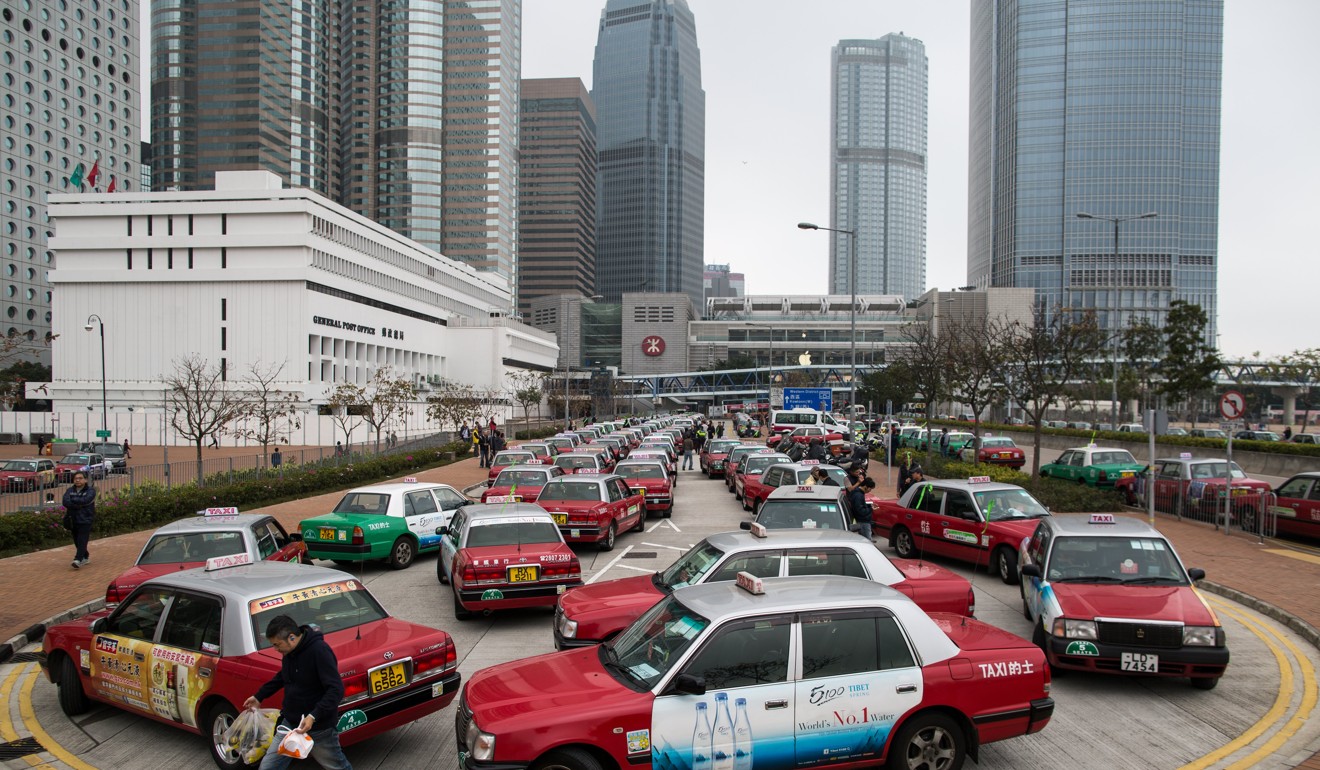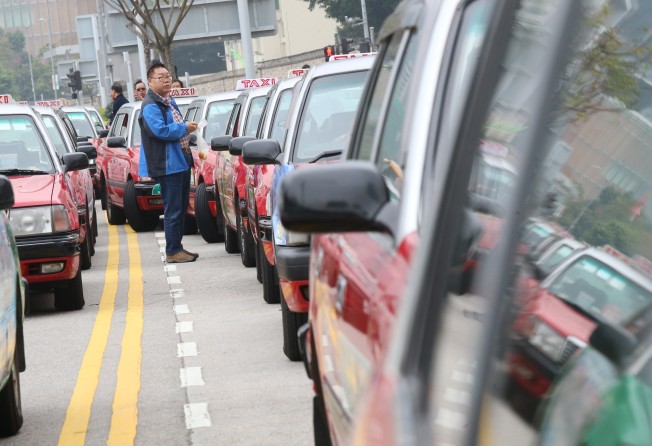
Why shabby taxis rule Hong Kong streets … and Uber can’t get a break
Government has openly displayed lack of will and motivation to make tough decisions by cowering behind current laws that make ride hailing illegal

Hoping for a magic formula to save an entrenched and traditional monopoly from the onslaught of a technology that won’t disappear or relent only deepens a problem.
Last December, the South China Morning Post reported that the Association for the Rights of Liberty Taxi Drivers threatened to launch a judicial review against the government if it actually adopts the Consumer Council’s suggestions to legalise ride hailing firms like Uber in Hong Kong, claiming that such a move would hurt the taxi industry.
Trying to be diplomatic, Gilly Wong, chief executive of the Hong Kong Consumer Council recently suggested that “adopting a progressive approach can minimise the impact of market disruption to the taxi industry brought on by e-hailing services”.
Actually, the ride hailing technology won’t hurt Hong Kong’s traditional taxi monopoly. It will destroy it.
“The Consumer Council’s report is very unfair to us as under this new platform ride hailing operators don’t need to pay for any licensing fees while operators need to dish out about HK$7 million to purchase a taxi licence,” said Don Li Lam-cheung, a representative of the association.
Hong Kong consumers appear to be held hostage by an unusually vociferous monopoly of taxi license owners. And government bureaucrats openly display their lack of will and motivation to make tough decisions by cowering behind current laws that make ride hailing illegal. The government has created and prolonged the mess by allowing taxi licenses to be traded like flats, bought and sold by non-drivers. So prices spiralled through speculation without any real value added to benefit users.
According to the Transport Department, more than half of Hong Kong taxis are at least seven years old. The government has capped the number of taxi licenses at around 18,000, ensuring inflated values for taxi licenses. These policies explain why our taxis increasingly look like the haggard New York cabs rattling on the 1970s streets in Martin Scorcese’s Taxi Driver.
Yet, there are local peculiarities that hinder the city’s sharp turn to Uber and other apps.
The marketing or technology switching dilemma is that Hong Kong’s highly dense and developed urban environment creates a situation where transport users still find it relatively easy to flag down a cab or find alternatives. The declining service and conditions offered by taxis may be irritating, but they are not terminally dire or intolerable. Marginal utility remains positive.

Combined with Hong Kong’s world class and convenient network of minibuses, buses and MTR, bad taxi service is tolerable or avoidable for the territory’s relatively short rides. Advocates may complain and say that Uber is better, but consumers are not sufficiently angered to take to the streets to support Uber. So Uber’s switching cost is higher than most people think.
Yet someone has to win (consumers) and lose (incumbent taxis). Technological process demands constructive destruction. The horrifying chart of Apple versus Research In Motion after the 2007 release of iPhone brutally demonstrates what happens if a company totally misses an innovation without government protection.
Both the government and taxi drivers collude in perpetuating a worsening economic situation. Proven, widely used ride hailing technology and its benefits should render the value of taxi licences in Hong Kong to near zero. License owners and investors should be exiting the industry at such inflated, financial bubble like valuations.

But, assailing a monopoly won’t work as the Hong Kong government is loathe to act on it or any other cartel. Change will only occur if enough tourists and foreign professionals who visit and attend tech promoting InvestHK events wonder why Uber is suppressed even though the app is displayed. Then, they are subjected to a mediocre level of taxi service that isn’t tolerated in developed cities.
The Hong Kong government can’t convince the world it is a credible connector or platform for mainland tech opportunities when China operates an ecosystem of several hailing apps and Hong Kong struggles to roll out cashless taxi payment systems. It must realise that even in Hong Kong’s free markets, capitalism and its citizens need to occasionally be rescued from rent seeking monopolies that block progress. Until the internet can create flats, our taxi situation should be the easiest cartel to break and reform.
Instead of confronting and dealing with many of Hong Kong’s pressing quality of life issues, the government has recently distracted itself by stubbornly wasting political capital supporting the embattled Secretary for Justice Teresa Cheng Yeuk-wah.
The defensive arguments of the taxi drivers and government have the stench of a writhing death – and technology is the killer. The mask of official illusion cannot have honest objections, only self-serving intentions. To not feel the need to change is to behave irresponsibly.
Peter Guy is a financial writer and former international banker